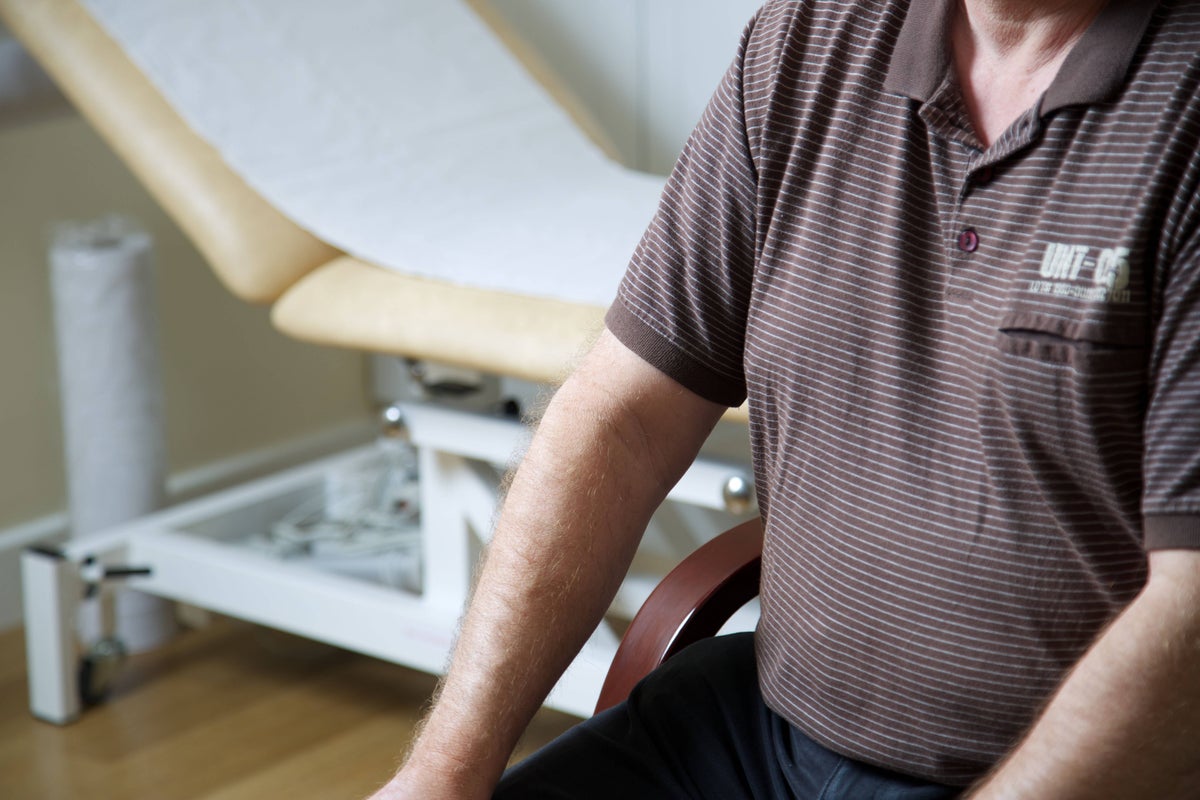
More than 100,000 patients have accessed NHS care faster thanks to a scheme that allows GPs to go direct to specialists for advice, according to the Department of Health and Social Care (DHSC).
Health Secretary Wes Streeting said too many people are “stuck on hospital waiting lists” when they should be cared for in the community.
The initiative, known as advice and guidance, allows family doctors to seek advice from specialists on the phone or online, who tell them if a patient needs to be treated in hospital or if they should be referred to other services such as dietitians and physiotherapists.
The aim is to help people avoid unnecessary hospital appointments – which they can wait weeks for – and start treatment sooner.
In January, it was announced that GPs would be offered £20 every time they consult a specialist using advice and guidance.
Three months later the Government expanded the initiative with the backing of an £80 million funding package as part of its aim to divert up to two million patients from NHS waiting lists by the end of next year.
Following the announcement, more than 113,000 patients accessed faster care in April thanks to the scheme, according to DHSC.
Mr Streeting said: “Too many patients are stuck on hospital waiting lists, when they should be cared for much sooner in the community.
“As part of our Plan for Change, we are funding GPs to get patients treated closer to home, avoiding unnecessary trips to the hospital, taking weeks off the time it takes for patients to get appropriate treatment.
“This combination of investment and reform is already making a difference, with thousands of extra patients getting the right care, in the right place, at the right time.
“As we shift the focus of the health service out of the hospital and into the community, more patients will benefit from faster, better-quality care.”
Health minister Stephen Kinnock added the Government is “taking a common-sense approach” that includes “tapping into existing expertise in the system, making use of wider services, and getting patients the right care faster”.
“Over 100,000 people have avoided unnecessary hospital queues because GPs are bypassing waiting lists and going direct to specialists for expert advice,” he said.
“It means quicker care for patients closer to home, less pressure on hospitals and more time for doctors to focus on those who need them most.
“It’s a win-win to deliver care closer to home, and create a more efficient, joined-up NHS that’s improving patient outcomes.”
Since the expansion there has been increased use of advice and guidance compared with April 2024, with a 21% rise in the South West and 8% increases in the North East, Yorkshire and London.
According to DHSC, some 99% of GP practices are now signed up to the initiative.
At Northumbria Healthcare NHS Foundation Trust, waiting times for initial outpatient appointments for people with liver, stomach and bowel conditions fell by 10 weeks thanks to advice and guidance, DHSC said.
More than 3,100 advice requests were processed at the trust in April, resulting in more than 1,000 patients being diverted away from elective waiting lists.
Dr Matt Warren and Dr Richard Thomson, consultant gastroenterologists at Northumbria Healthcare NHS Foundation Trust, said: “We have made the most of digital health records and modern diagnostics to get specialist opinions to GPs more quickly.
“This means patients are getting faster, personalised and effective care.
“Putting patients first is our guiding principle and this new way of collaborating feels professionally rewarding. We are committed to continuing to learn and improve the services for our patients.”
